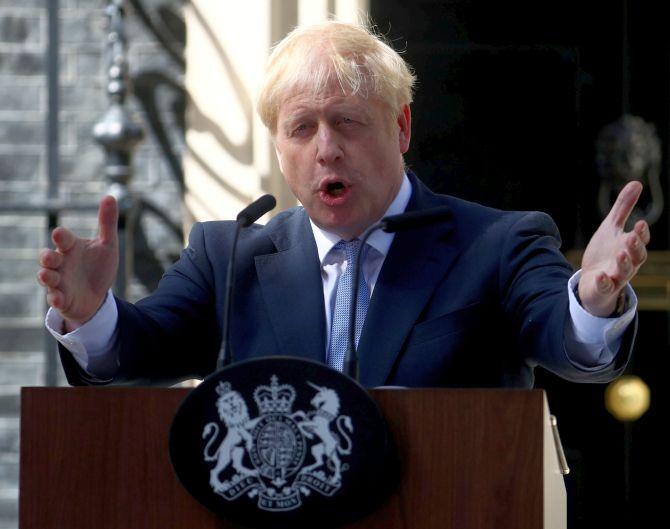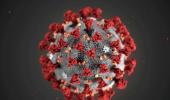British Prime Minister Boris Johnson, who is self-isolating after testing positive for the coronavirus, has written to every United Kingdom household to ask people to stay at home and follow the social distancing rules to fight the pandemic, warning them things will get worse before they get better.

In letters which will arrive through the post for nearly 30 million homes along with a leaflet outlining the UK government's advice, at an estimated cost of 5.8 million pound, Johnson says he will not hesitate to impose stricter measures.
The British prime minister, who has been working from home with mild symptoms, warned that things are set to get worse before they start getting better as the UK's death toll from the outbreak crossed the 1,000 mark to hit 1,019, with a further 260 deaths and 17,089 confirmed cases logged on Saturday.
"It's important for me to level with you – we know things will get worse before they get better. But we are making the right preparations, and the more we all follow the rules, the fewer lives will be lost and the sooner life can return to normal,” Johnson says in his letter to the nation.
"From the start, we have sought to put in the right measures at the right time. We will not hesitate to go further if that is what the scientific and medical advice tells us we must do," his letter reads.
The 55-year-old Conservative Party leader goes on to express his gratitude to everyone who is “working flat out to beat the virus”, including the “truly inspirational” doctors, nurses and other carers.
“Thousands of retired doctors and nurses are returning to the NHS – and hundreds of thousands of citizens are volunteering to help the most vulnerable. That is why, at this moment of national emergency, I urge you, please, to stay at home, protect the NHS and save lives,” he adds.
The letter outlines the guidance everyone should follow and the measures the government has put in place to fight coronavirus and to support businesses and workers.
The accompanying leaflet contains UK-wide information as well as directions about where to access online guidance specific to England, Scotland, Wales and Northern Ireland.
It includes clear explanations of symptoms, hand washing guidance, rules on leaving the house, self-isolating with symptoms and shielding vulnerable people.
The initiative comes as other senior ministers of Johnson's Cabinet have been stepping in to conduct the daily Downing Street briefings, with UK Business Secretary Alok Sharma leading the charge on Saturday evening.
The Indian-origin senior minister, who gave an update on Johnson's health to reveal that the UK PM continues to “lead right from the front on this”, announced that insolvency rules for companies would be changed to allow firms greater flexibility as they face the coronavirus crisis.
"These measures will give those firms extra time and space to weather the storm and be ready when the crisis ends, while ensuring creditors get the best return possible in the circumstances," the minister said.
He also unveiled a range of measures to boost the supply of personal protective equipment, such as face masks to protect frontline NHS staff.
"Red tape" would be reduced to allow new producers of hand sanitiser to bring products to market "in a matter of days", he said.
NHS England medical director Stephen Powis, who accompanied Sharma at the briefing, stressed that "every one of us" had a part to play if the UK was to keep the death toll under 20,000.
The warning came as the UK government's leading epidemiology adviser, Professor Neil Ferguson, told ‘The Sunday Times' that the UK population could need to stay at home for nearly three months.
"We're going to have to keep these measures [the full lockdown] in place, in my view, for a significant period of time -- probably until the end of May, maybe even early June. May is optimistic,” he said.
He said that when the lockdown was finally lifted, people would probably still be asked to enforce some forms of social distancing for months more.
That could mean schools and universities not reopening until the autumn later in the year, and people told to continue working from home rather than return to their offices.
Globally, more than 30,800 people have died after contracting Covid-19, from more than 664,000 confirmed cases.











 © 2025
© 2025